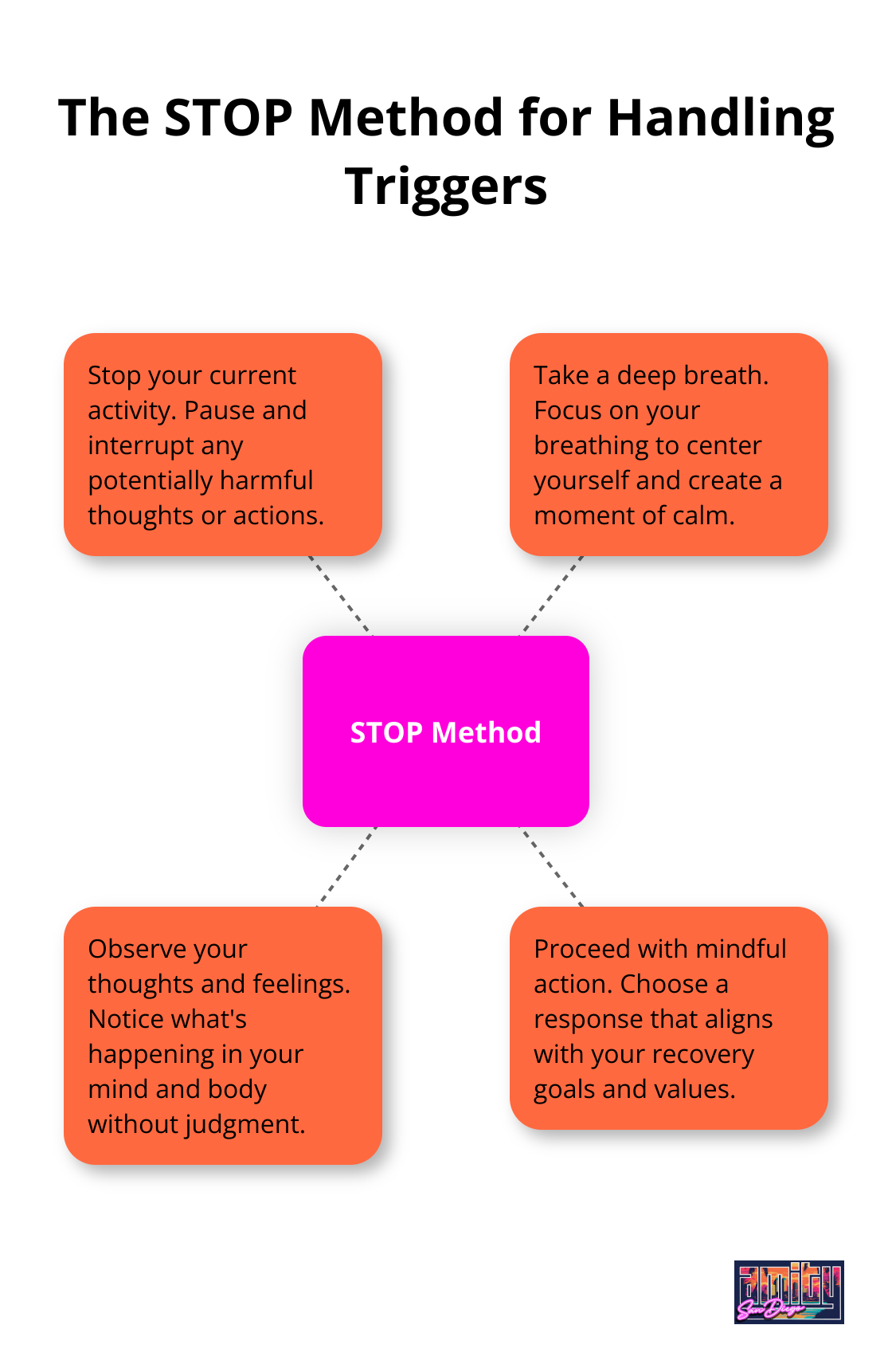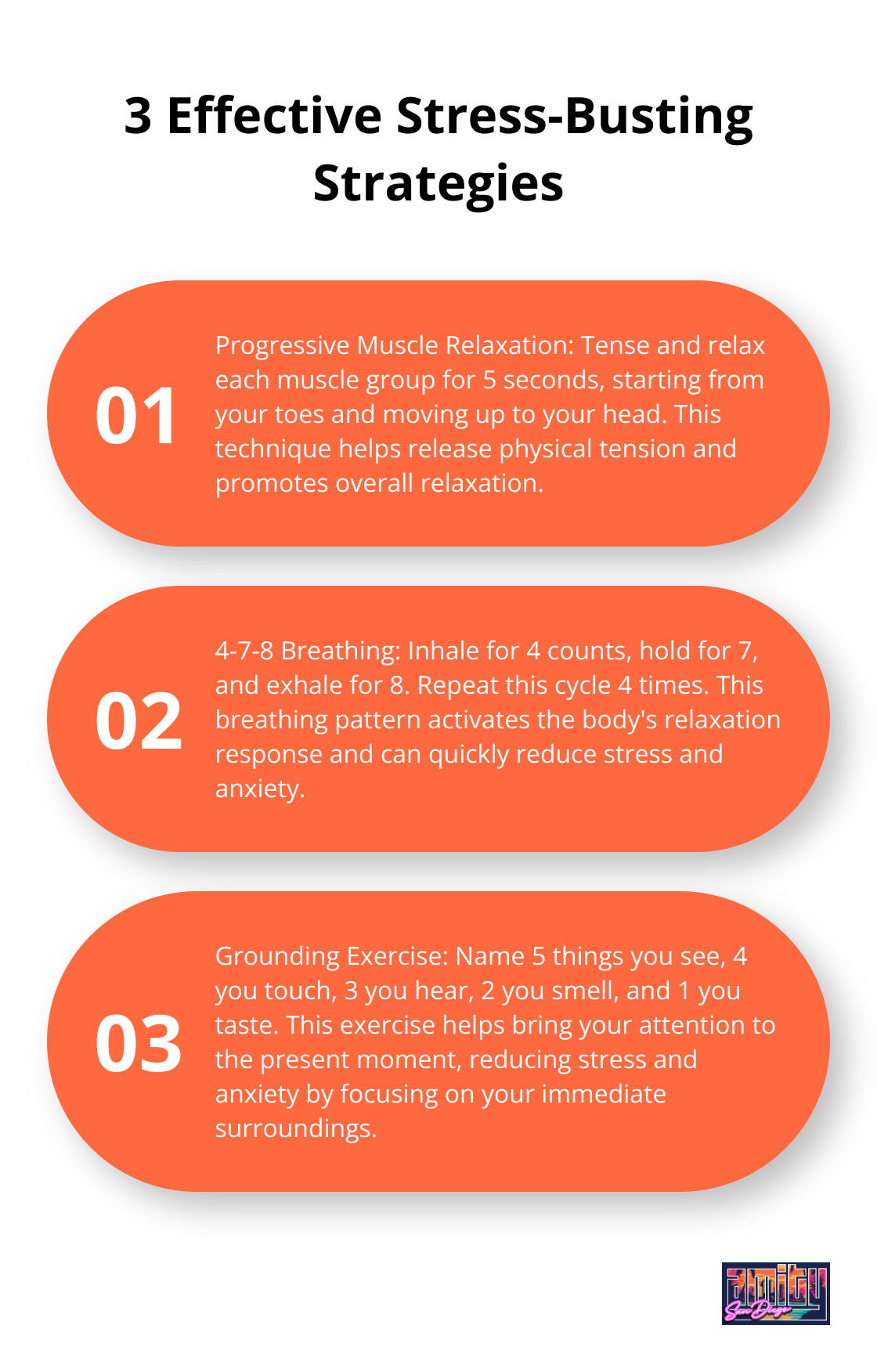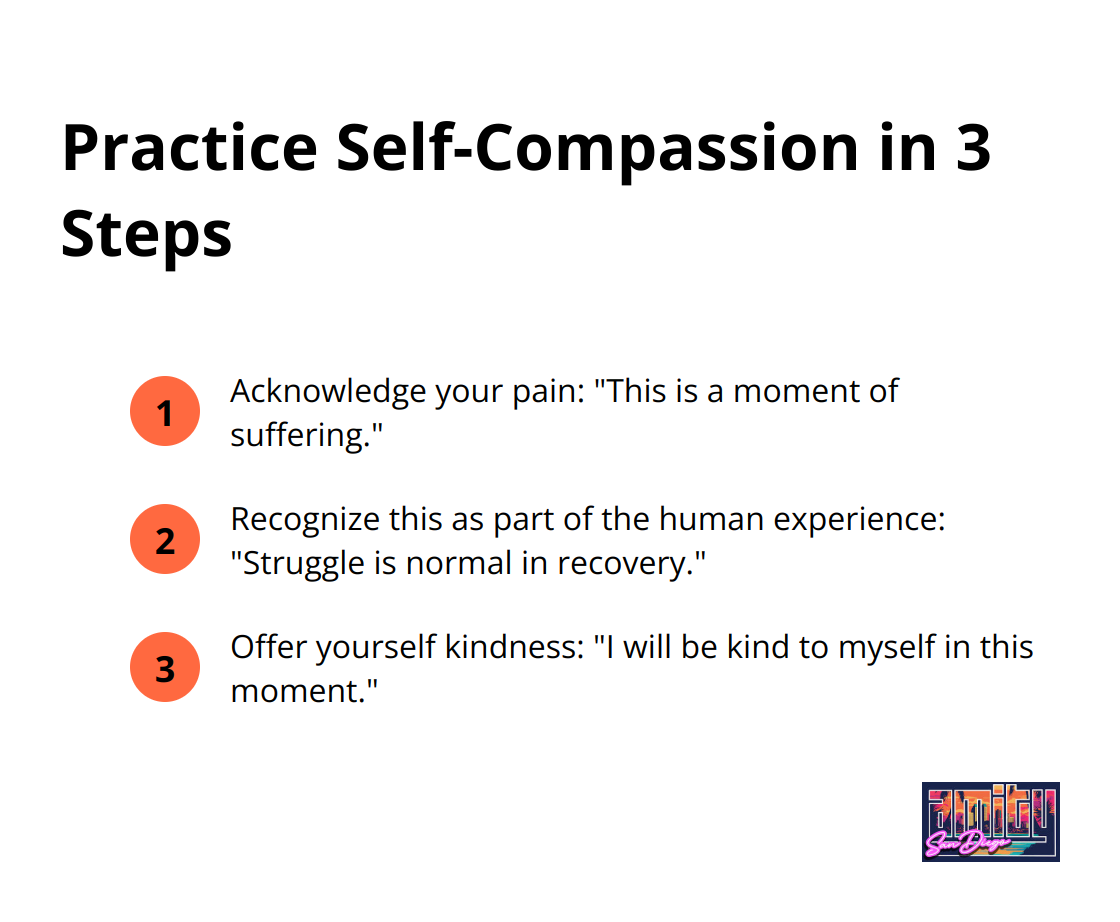At Amity San Diego, we know that building resilience is a game-changer for long-term sobriety. Resilience helps individuals bounce back from setbacks and maintain their recovery journey.
In this post, we’ll explore essential coping skills that strengthen resilience and support lasting sobriety. These practical techniques can make a significant difference in your recovery process.
What Is Resilience in Recovery?
The Foundation of Long-Term Sobriety
Resilience in recovery represents the ability to overcome setbacks and maintain sobriety despite challenges. This skill proves essential for those on the path to lasting recovery.
The Impact of Resilience on Sobriety
Research underscores the power of resilience in recovery. A study revealed that those who were abstaining for three months and above had a higher level of resilience. These findings highlight the strong connection between resilience and long-term sobriety.
Developing Your Resilience Toolkit
Contrary to popular belief, resilience isn’t an innate trait-it’s a skill you can cultivate. Here are practical strategies to strengthen your resilience:
- Embrace mindfulness: Dedicate 10 minutes daily to focus on your breath. This simple practice reduces stress and enhances emotional regulation.
- Accomplish small goals: Start with basic tasks like making your bed each morning. These small victories build confidence and create positive momentum.
- Foster social connections: Participate in support groups or reach out to friends. Treatment enables people to counteract addiction’s disruptive effects on their brain and behavior and regain control of their lives.
Resilience as a Relapse Prevention Strategy
Individuals with high resilience handle triggers and cravings more effectively. They tend to employ healthy coping mechanisms instead of turning to substances when faced with stress or adversity.
One effective technique is the STOP method:
S – Stop your current activityT – Take a deep breathO – Observe your thoughts and feelingsP – Proceed with mindful action
This straightforward approach allows you to pause and respond thoughtfully to challenging situations, rather than react impulsively.

The Ongoing Journey of Resilience
Building resilience takes time and consistent effort, but the benefits to your recovery journey are immeasurable. If you find it challenging to develop these skills independently, professional help can make a significant difference. Many individuals find that structured support accelerates their progress.
As we explore the key coping skills that form the foundation of resilience, you’ll discover practical tools to strengthen your recovery toolkit. These strategies will empower you to face challenges head-on and maintain your commitment to sobriety.
Mastering Essential Coping Skills
Mindfulness: Your Anchor in Recovery
Mindfulness transforms recovery journeys. This powerful tool manages cravings and stress. Start with a simple 5-minute daily practice:
- Find a quiet spot and sit comfortably.
- Focus on your breath, notice the inhale and exhale.
- When your mind wanders (it will), bring attention back to your breath.
Consistency yields benefits. Apps like Headspace or Calm can guide you.
Effective Stress-Busting Strategies
Stress triggers relapse. Try these three stress management techniques:

These techniques activate your body’s relaxation response, counter the fight-or-flight instinct often triggered in stressful situations.
Building Your Support Network
Recovery thrives on connection.
Strengthen your support system:
- Attend support group meetings regularly (try one per week).
- Identify 3 trusted individuals you can call during tough times.
- Consider peer support programs (many treatment centers offer alumni groups and mentorship opportunities).
Seeking support isn’t a sign of weakness – it’s a smart strategy for long-term success.
Creating Healthy Routines
Structure combats chaos. Establish a daily routine that includes:
- Consistent sleep schedule (try 7-9 hours)
- Regular, nutritious meals
- Daily physical activity (even a 15-minute walk counts)
- Time for relaxation and hobbies
These coping skills form the foundation of a resilient recovery, equip you to face challenges, and maintain your commitment to sobriety. Now, let’s explore specific exercises to further strengthen your resilience muscle.
Practical Exercises to Boost Your Resilience
At Amity San Diego, we see how practical exercises strengthen resilience in recovery. Let’s explore powerful techniques you can start using today.
The Power of Gratitude
Gratitude journaling transforms lives. Gratitude not only aids in recovery but also has a profound impact on mental health. It is connected to positive psychology, which enhances overall happiness. Write down three specific things you appreciate each day. Instead of “I’m grateful for my family,” try “I appreciate my sister’s supportive phone call today.”
Reframe Your Thoughts
Cognitive restructuring helps you challenge negative thought patterns. Cognitive behavioral therapy (CBT) for substance use disorders has demonstrated efficacy as both a monotherapy and as part of combination treatment strategies. When you think, “I’ll never stay sober,” pause and ask:
- What evidence supports this thought?
- What evidence contradicts it?
- What would I tell a friend in this situation?
Then, create a balanced thought like, “Recovery challenges me, but I make progress every day.”
Set Achievable Goals
Break down your recovery journey into small, manageable goals. If you want to improve your physical health, start with a 10-minute walk three times a week. As you achieve these smaller goals, you’ll build confidence and momentum.
Practice Self-Compassion
Self-compassion builds resilience. When you face a setback, try this exercise:

Move Outdoors
Physical exercise (especially in nature) boosts mood and resilience. Try a hike, beach walk, or even gardening.
These exercises work best when practiced consistently. If you struggle to implement these strategies on your own, seek professional support. Our team at addiction treatment San Diego guides you every step of the way.
Final Thoughts
Resilience forms the foundation of long-term sobriety. The coping skills we discussed empower you to face recovery challenges head-on. These practical tools, from mindfulness to stress management, can significantly impact your journey.
Consistent practice of these skills will strengthen your ability to maintain sobriety. Our team at Amity San Diego understands the importance of personalized, evidence-based treatment in building lasting recovery. We dedicate ourselves to guiding you through every step, helping you develop essential coping skills.
If you struggle to implement these strategies alone, professional support can provide the structure you need. Seeking help shows strength, not weakness. Your journey to lasting sobriety is possible with the right tools and support.



